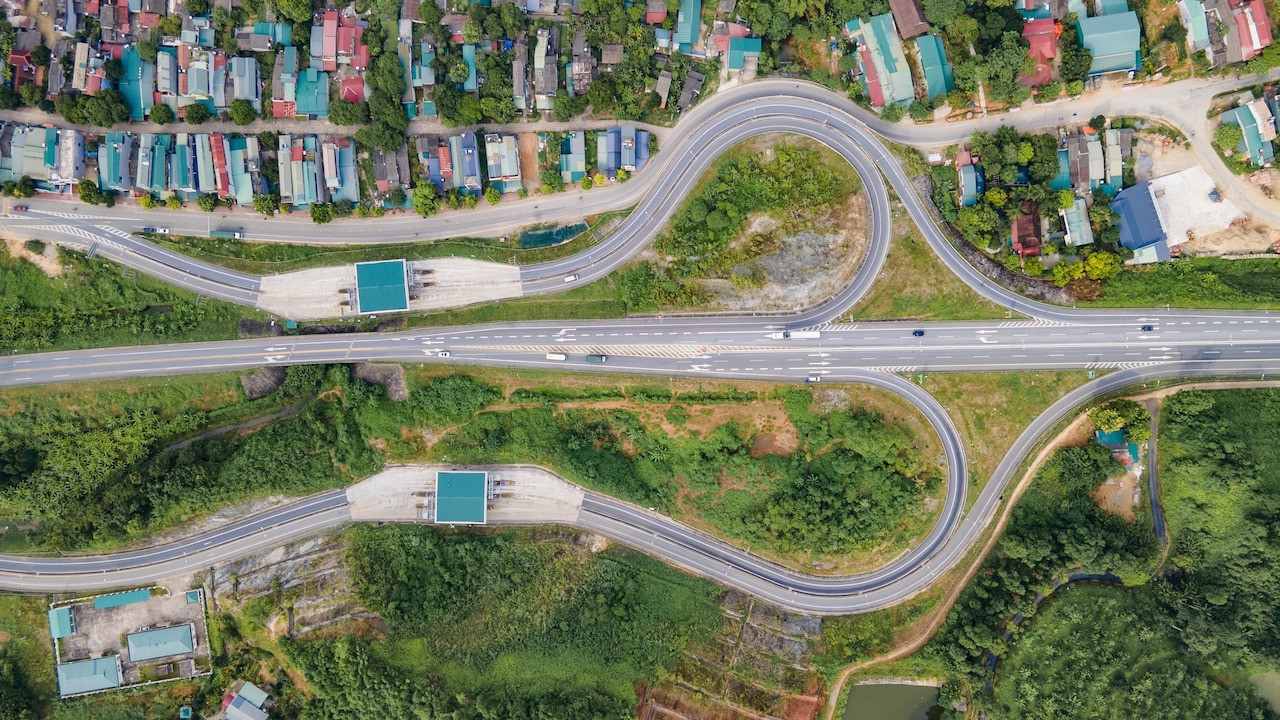
The Ministry of Construction has submitted a proposal to Prime Minister Pham Minh Chinh requesting approval to expand the Yen Bai–Lao Cai section of the Noi Bai–Lao Cai expressway to four lanes, with a total investment of approximately 7.668 trillion VND (around 305 million USD).
The ministry also recommended that the government allocate a portion of the increased central budget revenue from 2024 to help fund the expansion project. Simultaneously, it proposed assigning the Vietnam Expressway Corporation (VEC) as the investor responsible for executing the project.
Additionally, the Ministry of Construction suggested that the Ministry of Finance direct VEC to carefully review and calculate a detailed financial plan should the corporation need to mobilize funds for the expansion.
The financial plan must ensure that VEC can raise the necessary capital, meet obligations for repaying official development assistance (ODA) loans, and guarantee the viability of this project and four others under its management. It should also align with the approved capital increase plan for 2024–2026.
VEC would be held accountable to the Prime Minister and the Ministry of Finance for its investment and business plans, project implementation timeline, and construction quality. The corporation would also be responsible for developing a specific investment roadmap to begin construction on the Yen Bai–Lao Cai section by 2025.
“The Ministry of Construction will coordinate closely with the Ministry of Finance and VEC throughout the implementation of the expansion project,” the ministry confirmed in its official dispatch.
Previously, VEC submitted a plan to the Ministry of Construction outlining the proposed expansion of the Yen Bai–Lao Cai segment of the Noi Bai–Lao Cai expressway.
This segment, stretching from Km123+080 to Km244+155, was originally built with two lanes over 121 km. During the initial investment phase, some 40 km of the route were already upgraded to four lanes. The proposed expansion will focus on the remaining 83 km.
According to VEC’s report, the total investment needed to upgrade this stretch to a complete four-lane expressway is approximately 7.668 trillion VND (305 million USD), with 3.055 trillion VND (around 122 million USD) expected from the state budget and 4.613 trillion VND (about 183 million USD) mobilized by VEC.
Of the 4.613 trillion VND to be raised by VEC, 777 billion VND (about 31 million USD) would come from the corporation’s own capital, while 3.214 trillion VND (around 128 million USD) would be sourced externally. The toll collection period to recoup VEC’s investment is projected at 20 years, ending in 2045.
VEC confirmed that its investment plan takes into account post-tax cumulative cash flows for this and the other four expressway projects it manages, all of which remain in positive balance. It also guarantees its ability to repay ODA loans and carry out the expansion of the Yen Bai–Lao Cai section of the Noi Bai–Lao Cai expressway.
The full Noi Bai–Lao Cai expressway spans 245 km and has been operated by VEC since 2014 under a toll collection model. The Noi Bai–Yen Bai segment already features four lanes, while the Yen Bai–Lao Cai section still operates with only two lanes.
Although land clearance and roadbed construction were completed to accommodate four lanes, the lack of a median divider significantly restricts traffic flow and poses safety risks, especially during weekends and holidays when traffic volume surges.
N. Huyen